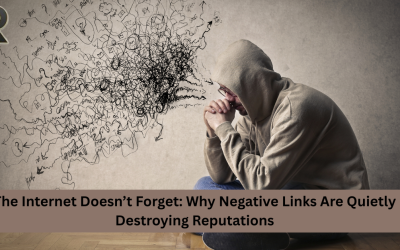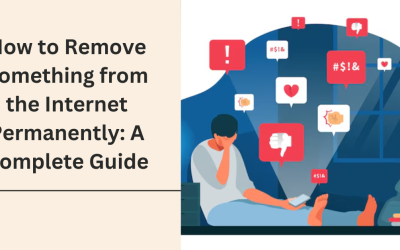Why Online Reputation Will Be the Biggest Challenge for Small Businesses in the Next Decade
In today’s digital age, a small business’s online reputation is often the first impression potential customers encounter. With 98% of consumers using the internet to research local businesses before making a purchase decision, maintaining a positive online presence is crucial. As we look ahead, managing and enhancing online reputation will become even more challenging—and more vital—for small businesses.
Here’s why online reputation will be the most significant hurdle for small businesses in the next decade and strategies to overcome it.
1. Increasing Dependence on Digital Platforms
The global shift towards online purchasing and services has made digital platforms indispensable for small businesses. Platforms like Google, Yelp, and Facebook serve as primary gateways for customer discovery.
Challenge: A single negative review or unfavorable comment on social media can significantly impact a small business’s credibility, leading to potential revenue loss.
Solution: Proactively manage your online presence by regularly monitoring reviews, promptly responding to feedback, and addressing issues to maintain a positive image.
2. Rising Consumer Expectations
Modern consumers are discerning, expecting seamless experiences both online and offline. They often base their purchasing decisions on online reviews, ratings, and social proof.
Challenge: Meeting these high expectations consistently, especially when competing with larger brands that have more resources, can be daunting for small businesses.
Solution: Deliver exceptional customer service and encourage satisfied customers to leave positive reviews, building trust and credibility over time.
3. The Growth of Social Media and Instant Feedback
Social media platforms have amplified the speed and visibility of customer feedback. A single viral post—positive or negative—can shape a business’s reputation overnight.
Challenge: Small businesses may lack the resources to constantly monitor and respond to social media comments or complaints in real-time.
Solution: Invest in affordable social media monitoring tools or Online Reputation Management (ORM) services to track and respond to mentions, ensuring timely issue resolution.
4. Fake Reviews and Misinformation
The rise of fake reviews and misinformation poses a significant threat. Competitors or malicious actors can post false reviews or spread misleading information to harm a business’s reputation.
Challenge: Identifying and removing fake reviews can be time-consuming and challenging without dedicated resources.
Solution: Report fake reviews to platform administrators and consider partnering with ORM professionals to combat misinformation and protect your business’s image.
5. SEO and Visibility Challenges
Search engine rankings are closely tied to a business’s online reputation. Negative content, such as bad reviews or unfavorable news articles, can dominate search results, making it difficult to attract new customers.
Challenge: Competing against established brands for visibility in search engine results can be tough for small businesses.
Solution: Implement strong SEO practices to promote positive content higher in search rankings, such as blogs, testimonials, and news about your business.
6. Limited Resources for Reputation Management
Unlike large corporations, small businesses often lack the budget and manpower for comprehensive reputation management.
Challenge: Balancing day-to-day operations with the demands of ORM can leave small businesses vulnerable to neglecting their digital image.
Solution: Leverage cost-effective ORM tools and services tailored for small businesses, allowing effective reputation management without overextending resources.
7. The Impact of AI and Automation
While AI-powered tools facilitate ORM, they also enable bad actors to create and spread fake content or reviews. AI-generated misinformation can quickly tarnish a small business’s reputation.
Challenge: Small businesses may struggle to combat the scale and speed of AI-driven attacks on their reputation.
Solution: Stay updated on AI trends and invest in tools that can identify and counteract fake content early.
8. Competition in a Crowded Digital Space
The internet is more crowded than ever, with countless small businesses vying for attention. Standing out positively amidst the noise will become increasingly difficult.
Challenge: Without a strong online reputation, small businesses may be overshadowed by competitors with better visibility or reviews.
Solution: Focus on building a niche audience and engaging authentically with customers through tailored marketing campaigns and superior service.
9. The Long-Term Effects of Negative Content
The internet has a long memory. Negative content, once posted, can remain accessible for years, affecting a business’s reputation long after the issue has been resolved.
Challenge: Old negative reviews, news articles, or social media posts can resurface, harming a business’s reputation years later.
Solution: Regularly audit your online presence and work with ORM experts to remove or suppress outdated and harmful content.
10. The Cost of Ignoring Reputation Management
Reputation management is no longer optional. Ignoring ORM could lead to reduced customer trust, lower sales, and, ultimately, business failure in an increasingly competitive market.
Challenge: Many small businesses underestimate the importance of ORM until it’s too late.
Solution: Treat ORM as an integral part of your business strategy, budgeting for it just as you would for marketing or inventory.
Looking Ahead: How to Stay Ahead of ORM Challenges
To thrive in the next decade, small businesses must take a proactive approach to online reputation management. Here’s how:
- Invest in ORM Tools: Use affordable tools to monitor reviews, mentions, and ratings across platforms.
- Engage with Customers: Actively respond to reviews and feedback, showing customers that you care.
- Build a Positive Reputation: Encourage happy customers to share positive experiences online.
- Stay Updated: Keep up with ORM trends, tools, and best practices.
- Seek Professional Help: Partner with ORM experts to manage your reputation effectively and protect your business from reputational risks.
Online reputation management is no longer a luxury—it’s a necessity for small businesses in the digital age. The challenges are real, but so are the opportunities to build trust, attract customers, and grow your business.



